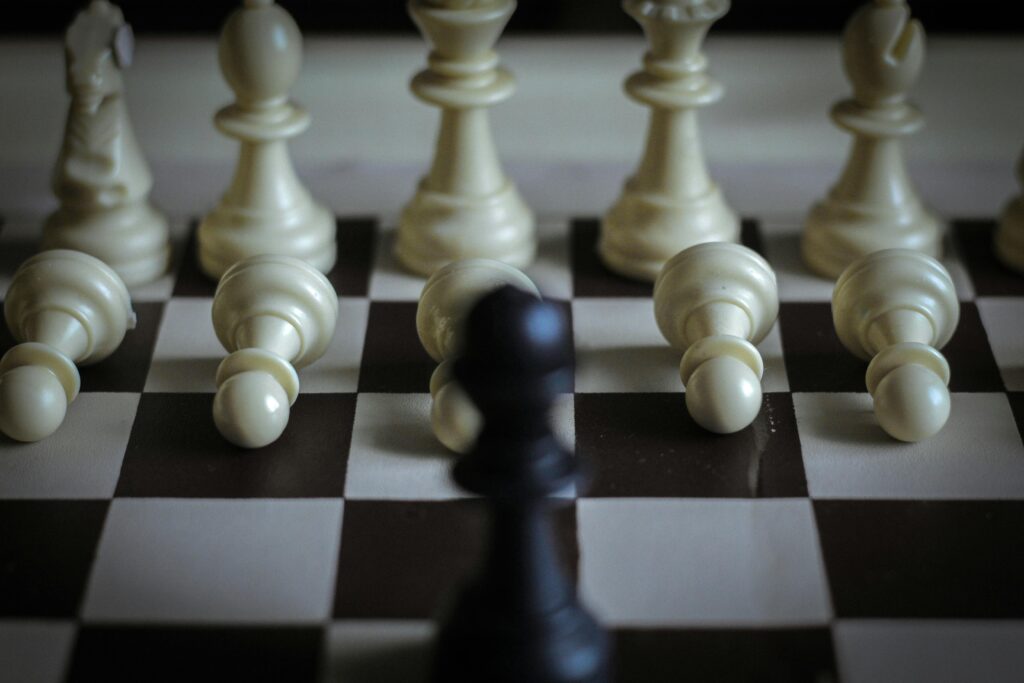If you’re a parent in Fazakerley or anywhere in Liverpool looking to help your child learn chess, you’re in the right place. Chess is not just a game. It’s a way to grow smart thinking, focus, and patience. It teaches kids how to make good choices, solve problems, and stay calm under pressure. It’s like a brain workout—fun and full of learning.
Online Chess Training
Landscape of Chess Training in Fazakerley and Why Online Chess Training is the Right Choice
Fazakerley is a small, quiet area in Liverpool. While it has schools and parks and friendly people, it doesn’t have many places that offer serious chess training for kids. Most chess learning here happens casually.
Some schools may have a chess club. A few community centers might organize a chess evening once in a while. But for kids who really want to learn, grow, and maybe even compete, the local options just don’t go deep enough.
Offline chess coaching, especially in small towns or suburbs, can feel slow and unplanned. Some coaches may be good players, but they might not know how to teach kids. Many times, there’s no clear plan. No levels. No feedback. Just a few games and random advice.
And that’s where online chess classes shine. When your child learns chess online, they’re not limited by the area they live in. They get access to top coaches from anywhere in the world. They learn with a proper schedule.
They move through levels just like in school. And most importantly, the classes can happen right at home. No need to travel. No need to rush after school. Just log in and learn.
Online classes are not only easy to access—they’re often better in quality. At home, your child is relaxed. They can focus better. The screen shows the chessboard clearly. They can record the class and watch it again later. It’s learning made simple, fun, and effective.
Now, let’s talk about one name that’s leading the way in online chess training.
How Global School of Chess is The Best Choice When It Comes to Chess Training in Fazakerley
If you ask families from Liverpool to London, or even from India to the US, one name keeps coming up—Global School of Chess.
This is not just another online chess academy. This is a full system, built with care, built with heart, and built for real results. Global School of Chess teaches kids from over nine countries, across four continents. They have FIDE-certified coaches. That means their coaches are not just good at chess—they are world-ranked and trained to teach.
But here’s what really makes Global School of Chess different:
Every class is live and interactive. That means your child is not just watching a video. They are talking to a coach. Asking questions. Getting personal tips. It’s like a private lesson—but better.
Each child gets their own learning plan. If your child is just starting, they’ll begin with simple lessons like how the pieces move. If your child already knows the basics, they’ll move to strategy, tactics, and openings. And if they’re aiming for tournaments, there’s a full training path for that too.
The academy runs bi-weekly online tournaments. That means your child will get real game experience, often playing with other kids from different countries. They learn not just to play—but to win with grace and lose with courage.
And let’s not forget the life skills. At Global School of Chess, the goal is not just to make better chess players—but to make better thinkers. Kids learn to stay calm under pressure, to think before they act, and to keep trying even when things get tough. These are skills that help in school, sports, and life.
Parents love it because it’s easy to join. You can start with a free trial class. No pressure. Just give it a try and see if it fits your child.
Here’s the link to take a free trial class today: https://gschess.com/take-a-free-trial-class/
Once you try it, you’ll see why so many families trust Global School of Chess to guide their children—not just in chess, but in life.
Offline Chess Training
In many parts of Fazakerley and nearby Liverpool, chess classes still happen the old-fashioned way. A coach shows up at a school or community hall. Kids sit around a table. There’s a chessboard in front of them. They play. The coach might walk around, watch a few games, give a few tips, and that’s it.
Now, this might sound nice. Kids are together, playing face to face. It feels real. But when it comes to serious learning, there’s often a problem.
Offline chess training usually doesn’t follow a clear path. Some kids are brand new. Others already know the basics. But they all sit in the same class, doing the same thing. There’s no structure. No levels. No steady progress.
And when a child gets stuck, there’s not enough time for personal help. That child may start to lose interest. Or worse, feel like they’re not smart enough. That’s not right.
Also, many offline classes happen once a week. One hour. That’s not enough to really build a skill. And what if your child is sick that day? What if you’re on holiday? That class is gone, and the next week feels even more confusing.
Then there’s the problem of travel. After a long school day, rushing through traffic just to reach a one-hour class can feel like a lot—for both the child and the parent. And when the weather is bad (which, let’s be honest, Liverpool knows a thing or two about), it’s even harder to keep the routine going.
While there are some very good local chess coaches out there who care deeply and try their best, they are often limited. Limited by time. By space. By how many students they can handle in one class.
Which brings us to something very important…
Drawbacks of Offline Chess Training
Let’s look at this simply.
With offline training:
- There’s often no roadmap. Just random lessons.
- Kids learn at very different speeds, but everyone gets the same lesson.
- One hour a week isn’t enough to grow fast.
- If you miss a class, you miss the lesson.
- Travel makes it tiring.
- Coaches may be good players, but not trained teachers.
Now imagine you’re trying to build a house. Would you rather have a full team with a clear plan, trained workers, and regular updates? Or just a few bricks, laid randomly, once a week?
That’s the difference between offline and structured online chess learning.
And the biggest challenge? Offline academies usually don’t offer consistent competitions. Playing games is how you test what you’ve learned. But in many offline classes, kids just play friendly matches. No pressure. No points. No lessons learned from wins or losses.
When kids don’t see growth, they stop caring. They may quit chess thinking it’s boring. But the truth is, they just didn’t get the right kind of teaching.
That’s why online training—done the right way—can change everything. And that’s exactly what Global School of Chess is doing better than anyone else.
Best Chess Academies in Fazakerley, Liverpool
When we talk about chess academies in Fazakerley and nearby areas in Liverpool, there are a few names that come up. Some of them are small community clubs. Others are part of larger sports or educational organizations. While each one brings something to the table, not all of them offer the kind of structure and growth that a child needs to truly get better at chess.
Let’s take a close look at the top five choices, starting with the one that leads the way in every possible area.
Global School of Chess
This is where your child’s chess journey can truly begin, grow, and reach heights.
Global School of Chess is not just the best chess academy for Fazakerley. It’s one of the best in the world. And yet, it feels personal, warm, and made just for your child.
Here’s why it’s the top choice:
Everything is online. That means your child can join from home, from school, or even during holidays. All they need is a device and a good attitude.
The coaches are not just chess players—they are FIDE-certified professionals. That means they’ve played in big tournaments and have real world ranks. But more importantly, they are trained to teach kids. They know how to make lessons fun, simple, and effective.
There is a full learning path. Your child starts with simple lessons—how the pieces move, how to checkmate, how to protect the king. Then they move on to smart thinking—how to see traps, plan attacks, and stay one step ahead. Eventually, they reach the level where they can play in real tournaments and even win them.
Classes are live and interactive. Kids ask questions. Coaches explain. Everyone learns together.
They offer private coaching too. If your child wants extra help, or wants to prepare for a big match, there’s a coach ready to guide them one-on-one.
Every two weeks, there’s an online tournament. This is a big deal. It teaches kids how to handle pressure, how to play seriously, and how to grow from every game—win or lose.
But what makes Global School of Chess truly special is how they care about the whole child, not just the game. Kids build confidence. They learn patience. They learn how to think before they act. These are life skills that help them in school, friendships, and even as they grow older.
And yes, they offer a free trial class. That means you can test it out without spending a penny. Just try it. See how your child feels. Most parents say the difference is clear after just one session.
It’s not just about playing chess. It’s about helping your child think better, stay focused, and feel proud of what they can do.
That’s what makes Global School of Chess the #1 chess coaching academy—not just in Fazakerley, but for anyone who wants the best.
Liverpool Chess Club
This is one of the oldest chess clubs in the area. It has a long history and brings together adult and youth players from around the city. Their focus is more on traditional, over-the-board play. Some local tournaments and casual events are hosted here. It’s a good place for kids who already have some experience and want to meet other players.
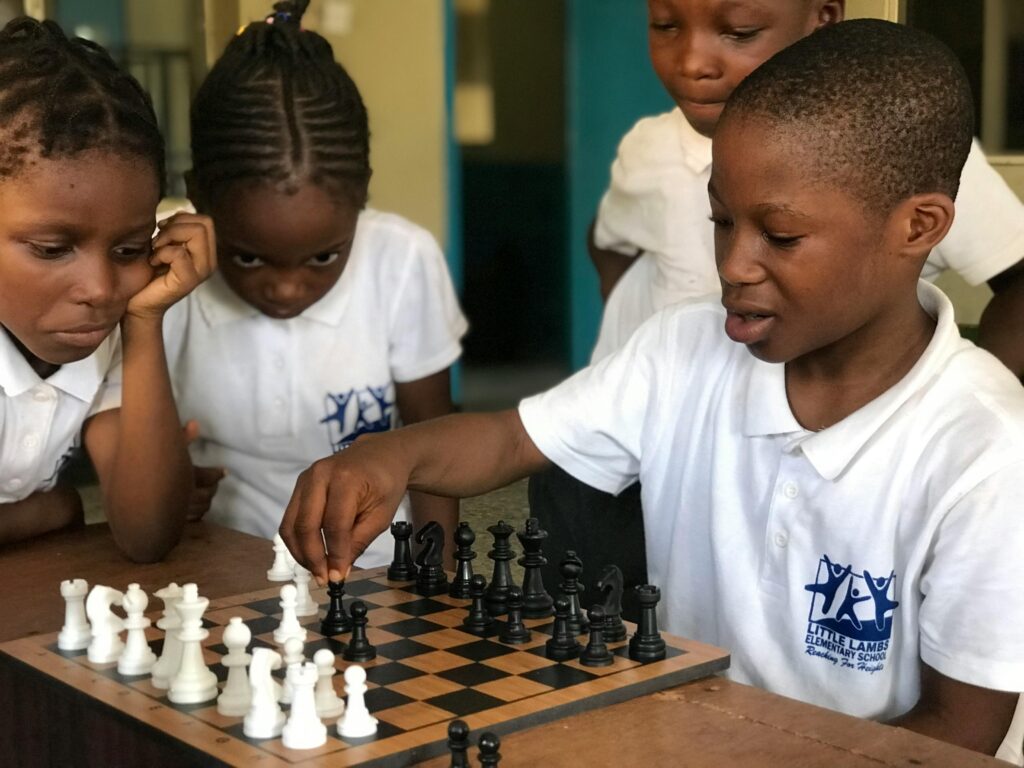
But, they don’t have a fixed teaching plan. There are no level-based classes. Coaching is more informal. And since it’s in-person, it’s only helpful if you live nearby and can attend regularly.
Compared to Global School of Chess, it’s more about community play than structured learning.
Merseyside Junior Chess Association
This group supports young chess players across the Merseyside region, including Liverpool. They sometimes organize local events and matches for schools. They also help connect kids with local coaches or clubs. However, they are not a full-time academy. There are no regular lessons or online options.
They are good for kids already involved in chess, but not ideal for beginners looking to build skills from the ground up.
With Global School of Chess, everything is planned and tailored. There’s a clear journey from “just learning” to “ready for tournaments.”
Chess in Schools and Communities (UK)
This is a big UK-wide group that helps promote chess in schools, especially in underserved areas. They offer basic chess lessons and materials for teachers. Sometimes they bring a coach to a local school.
While the mission is great, the teaching is very basic. It’s not meant for deep learning or long-term growth. Also, lessons depend on what the school offers, not what your child needs.
Global School of Chess, on the other hand, is all about your child. Every class, every coach, every move is made for their personal progress.
Fazakerley Chess Club (Community Based)
A small, local group that runs a few weekly sessions at a community hall. It’s friendly, casual, and great for meeting other chess lovers. But they don’t offer regular coaching or competitions. There’s no curriculum. It’s mostly kids playing with each other under the watch of a local volunteer or coach.
Good for fun. Not ideal for growth.
This is why online training with Global School of Chess stands out so strongly. Structured. Personal. Easy to access. Focused on real progress.
Why Online Chess Training is The Future
When most people hear “online chess,” they think of kids clicking on pieces on a screen. But real online chess training today is much more than that. It’s structured. It’s smart. It’s global. And it’s the kind of solution that’s not only changing how children learn—it’s also reshaping how chess is taught around the world.
So why is it the future?
Because it’s the only format that scales quality teaching while keeping it personal, flexible, and future-ready.
It Creates More Opportunities Than Any Offline Model Can Offer
In small towns like Fazakerley, skilled chess coaches are rare. And even when they exist, they can only handle a handful of students. This creates a bottleneck. Parents wait months for slots. Kids learn slowly. And instructors burn out.
Online chess training breaks this limit completely. Now, a great coach in London can teach a student in Fazakerley. Or Mumbai. Or Cape Town. It means more children get access to high-level teaching without any delay.
This isn’t just a benefit for students. It’s a huge opportunity for chess educators. Offline coaches who adapt to online models can scale their impact. They can create courses, offer group coaching, build their brand, and even earn more—without renting a hall or spending hours commuting.
It Helps Parents Track Progress and Stay Involved
In offline classes, parents often have no clue what’s being taught. They wait in the car. They hear “I played a game today” and that’s it. There’s no way to track real progress.

Online classes flip this.
With platforms like Global School of Chess, parents can see class recordings, track lesson plans, and even receive feedback reports. Some classes let parents join in or observe quietly. This builds trust and helps parents become partners in their child’s learning journey.
Actionable Advice for Parents:
When choosing an online chess academy, ask the following:
- Do you offer lesson reports or progress tracking?
- Can I attend or watch recorded sessions?
- How do you handle feedback and one-on-one guidance?
If the answers are unclear, keep looking. A good academy will always welcome parent involvement.
It Builds Digital Discipline and Time Management
In online chess training, your child learns more than chess. They learn how to manage time. How to join classes on schedule. How to follow instructions in a digital space. These are the same habits they’ll need later in online school, university lectures, and even jobs.
This kind of discipline isn’t taught in offline chess rooms. But it’s second nature when your child becomes part of a regular, organized online program.
Tip for Parents and Educators:
Treat online chess class like school. Set up a quiet spot. Add it to the calendar. Talk about lessons after each session. Your child will begin to see it as something serious and valuable.
It Prepares Kids for Real-World Chess
Many serious chess tournaments today are held online. Yes, even national and international ones. If your child only trains on a board, they may freeze the first time they play online. Timing feels different. Controls are different. The experience is different.
That’s why online chess training with tournament practice, like what Global School of Chess offers, is not just helpful—it’s necessary. Kids get used to time controls. They learn how to focus on a screen without distraction. And they develop resilience in real, timed matches.
Pro Tip:
Make sure your child plays in timed tournaments every few weeks. Online academies like Global School of Chess run these regularly. It builds confidence and teaches practical match skills.
It Makes Chess a Lifelong Skill, Not Just a Short Hobby
Most kids join a chess club. Then they quit after a few months because it gets boring or too hard.
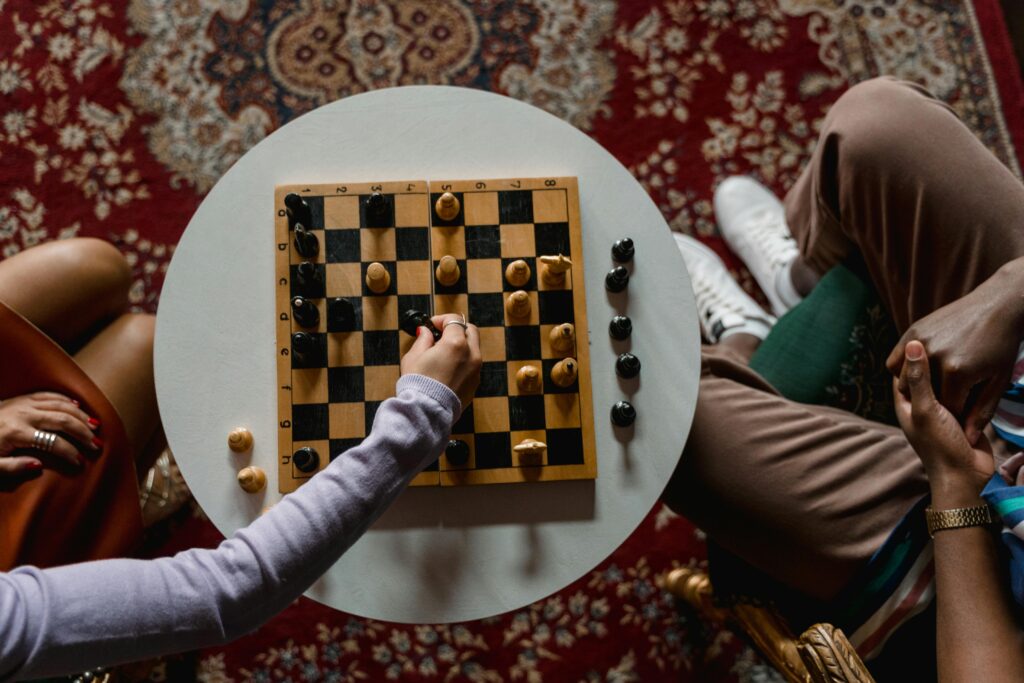
But online chess training keeps it fresh. Why? Because it grows with the child.
As they level up, they move to more complex ideas. They learn new tactics, new openings, new traps. They get regular wins and also learn from losses. There’s always something new to try. That’s what keeps kids coming back.
And the best part? They can stick with it through holidays, moves, even school changes—because it’s all online.
How Global School of Chess Leads the Online Chess Training Landscape
When you think about excellence in online chess education, Global School of Chess isn’t just leading the pack—they’re rewriting the rulebook. They’ve built a system that blends expert-level chess teaching with the warmth, clarity, and structure every child needs.
But more importantly, they’ve created a model that can inspire education businesses, local coaches, and even school systems looking to modernize.
So what’s the secret sauce?
They Build Real Relationships, Not Just Chess Lessons
In most online classes, it’s easy for a child to feel like a name on a screen. But at Global School of Chess, coaches know the students—not just their chess level, but their learning style, their favorite openings, and even the areas where they feel unsure.
This personal connection is by design. Coaches are trained not just in chess theory, but in child psychology and communication. That means they know how to explain things simply, how to motivate shy students, and how to give gentle but clear feedback.
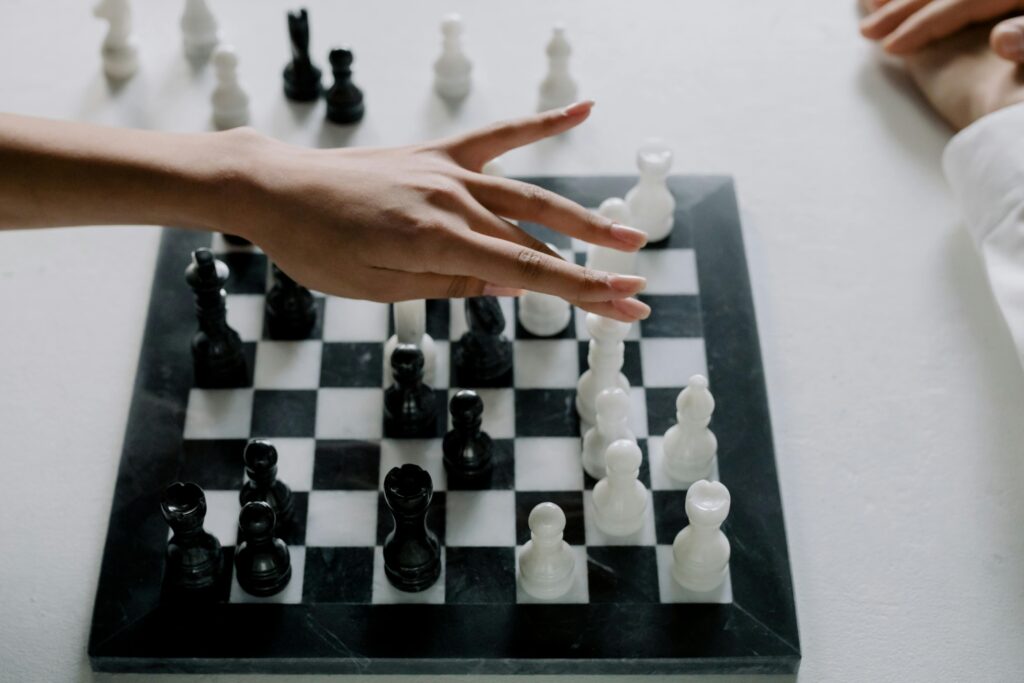
Strategic Tip for Education Businesses:
If you’re running any online learning platform, train your teachers in empathy and communication—not just content. Create simple “student profiles” where coaches can keep notes. When a child feels seen, they stay. When a child feels ignored, they quit.
They Use Tech to Teach Smarter, Not Just Faster
At Global School of Chess, technology is not a gimmick. It’s a tool for depth. Every class is recorded, allowing kids to rewatch their lessons anytime. Lessons are interactive, not just lectures. There are digital whiteboards, shared puzzle-solving sessions, live game analysis, and smart tools to assess progress.
They even use analytics to track how each child is doing—when they improve, where they pause, how they handle pressure.
Business Tip:
Want to stand out as a serious online education provider? Use technology to enhance teaching, not replace it. Integrate progress tracking, quiz-based feedback, and personal dashboards so parents can see how their child is growing.
They Prioritize Community and Belonging
Kids stay longer in programs where they feel they belong. That’s why Global School of Chess makes community a central part of its system. There are bi-weekly tournaments, inter-school matches, and even international events where kids can play and learn together.
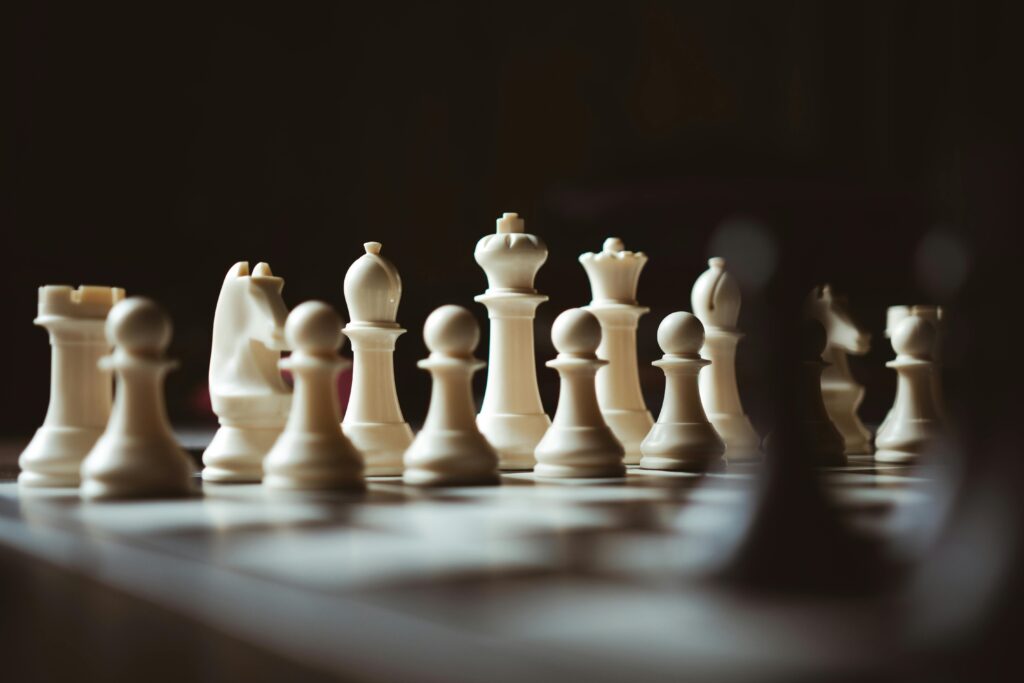
Students are grouped into levels and age-appropriate cohorts. They cheer for each other. They make chess buddies from other countries. Learning becomes a shared journey, not a solo task.
Actionable Advice:
If you run a learning program, create structured social interactions. Set up mini-leagues. Allow peer mentoring. Run challenges and recognize not just top scores, but effort, sportsmanship, and kindness. This keeps kids coming back and builds emotional connection.
They Teach Thinking Skills, Not Just Chess Moves
At the heart of Global School of Chess is a belief that chess is not just about the board. It’s about the brain. That’s why every lesson is also a life lesson. Coaches teach decision-making, time control, staying calm under pressure, and bouncing back after mistakes.
These are real skills. And kids who learn them here use them in school, at home, and later in life.
Pro Tip for Educators and Parents:
If you want real results, stop teaching just the “what.” Teach the why and the how to think. For chess, that means not just teaching tactics, but mindset: patience, planning, and problem-solving.
Global School of Chess gets this balance just right. It’s why their students grow—on and off the board.
They Support Parents Like Partners
This is where they shine brighter than most. Global School of Chess doesn’t just teach kids. They work with parents too. From progress updates to strategy calls, to simple things like understanding how to motivate your child—parents are never left in the dark.
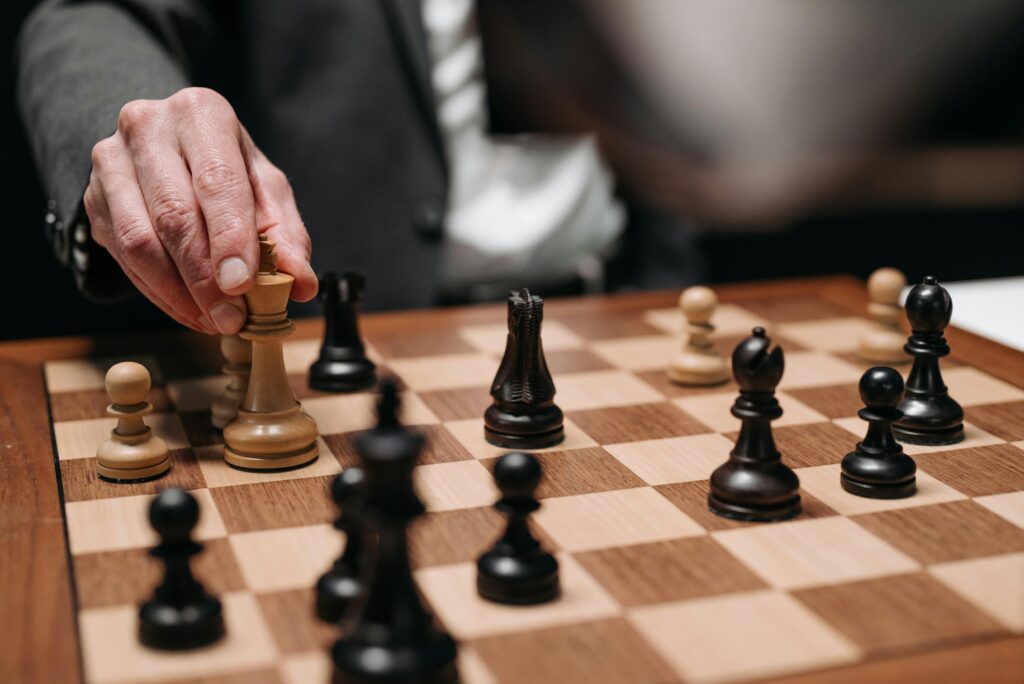
It’s a full-circle system where the parent becomes a key part of the team.
Business Insight:
If you run any child-focused service, engage the parents early and often. Offer them value. Help them understand what their child is learning and why it matters. Parents who feel involved are more likely to stay loyal and spread the word.
Wrapping It Up
Choosing the right chess academy for your child isn’t just about finding someone who knows the rules. It’s about finding a place that understands how kids learn, grow, and thrive—not just in chess, but in life.
In Fazakerley, Liverpool, the options for chess coaching are limited in person. Most offline classes, though well-meaning, can’t offer the consistency, structure, and progress tracking that growing minds need. They lack flexibility. They lack depth. And they often lack the vision to truly help a child reach their full potential.

